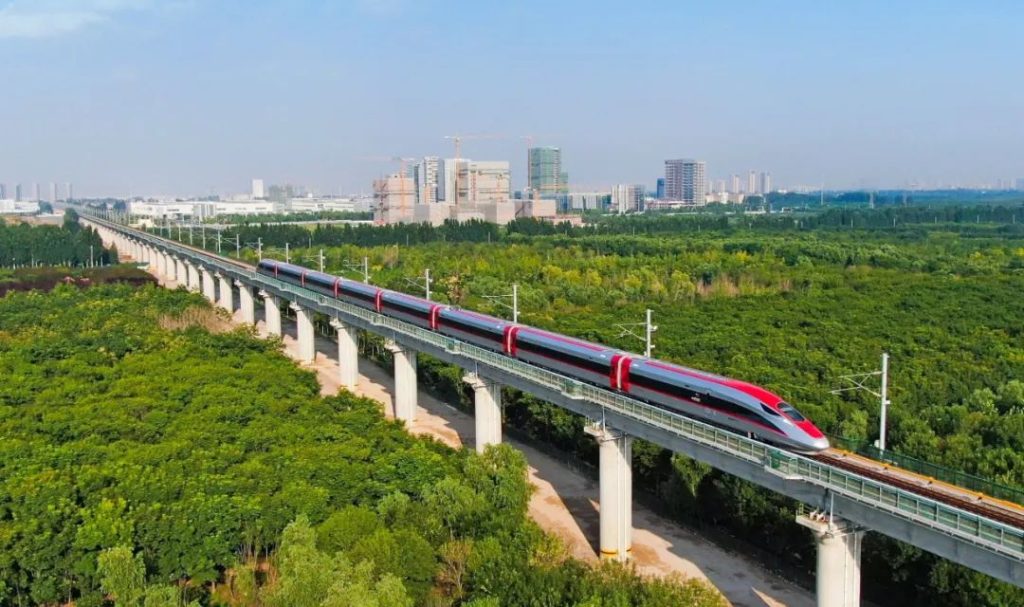Indonesia’s bullet train, the first of its kind in Southeast Asia, is on track to become operational in 2023, despite a delay caused by discrepancies in the cost overrun.
A 142km railway is being constructed to connect capital Jakarta with Bandung, one of the country’s largest cities. The project is part of China’s Belt and Road Initiative and is being constructed by PT Kereta Cepat Indonesia-China (PT KCIC), which is owned 60% by an Indonesian consortium of four state-owned companies, while the rest belongs to China’s Railway Engineering Corporation and other Chinese companies.
This will be the first high-speed rail in ASEAN [Association of Southeast Asian Nations] and we hope this will increase connectivity between countries, whether it will be connected further to an airport or other high-speed railways.
Indonesian President Joko Widodo
President Joko Widodo stated that 88.8% of the construction has been completed and despite having encountered problems in the construction of several tunnels, they “have overcome the obstacles and, if nothing goes wrong, KCJB (Kereta Cepat Jakarta-Bandung) will start operating in June 2023”.
The construction was carried out on a massive scale to pursue operational targets in end of 2022, however, a recent discrepancy over the cost overrun has delayed the project to next year. KCIC estimated the extra costs to about $2 billion, which would bring the total cost to 113 trillion rupiah ($7.36 billion), while China only estimated the extra costs to less than $1 billion, according to Koran Tempo newspaper and reported by Reuters.
KCIC also revealed in August that 12 high-speed trains for travelling the KCJB route, designed to operate in accordance with the geological conditions in Indonesia, especially the tropical climate, were delivered and ready to be put on tracks.
Of the total length of high-speed railway lines, more than 80 km of them have elevated structures while the rest are 13 tunnels and subgrades. Several temporary facilities such as Batching Plant and Casting Yard were built at critical points to support the acceleration of the construction process.
The trains will reach speeds of up to 350 km/h, which would take the current travel time between Jakarta and Bandung from 3 hours to just 40 minutes. They will be powered by a 625,000 Watts motors and will be divided between VIP, first and second class, while several carts with large spaces between seats will be reserved for passengers with reduced mobility.













